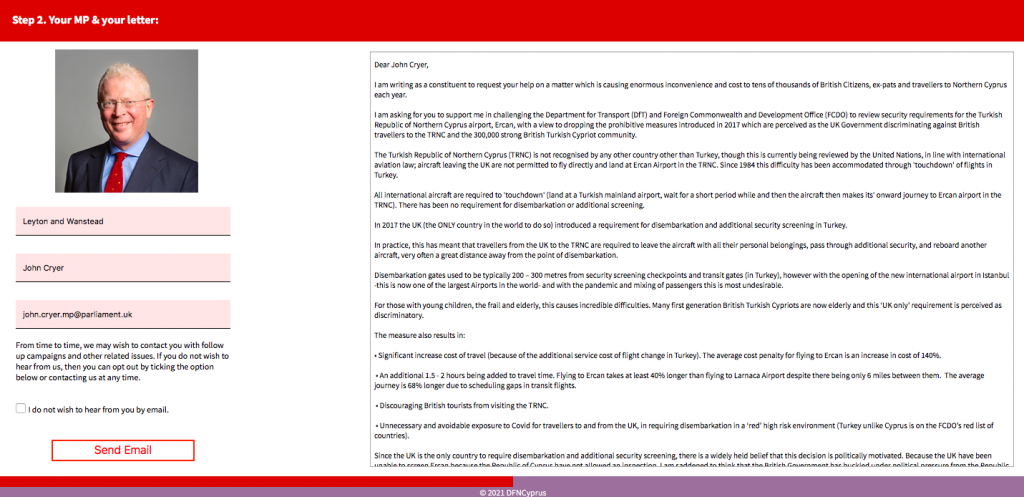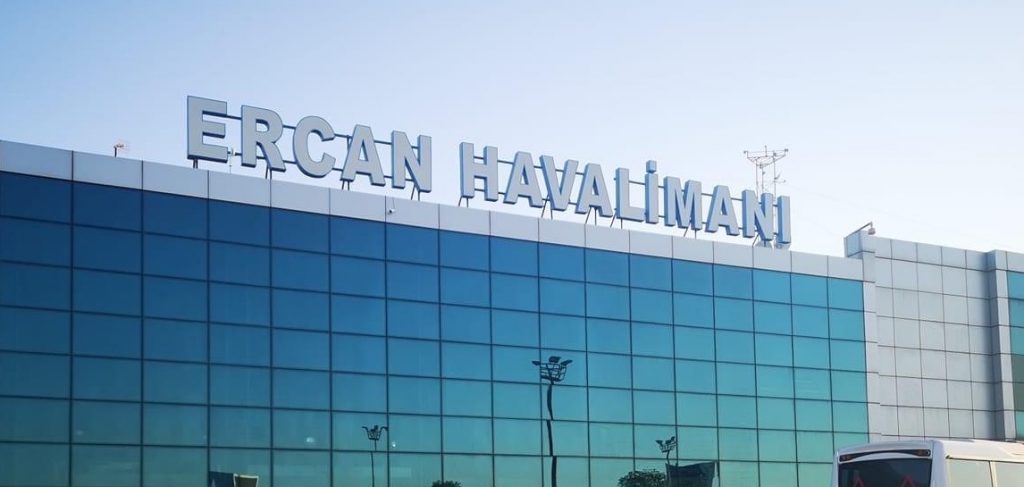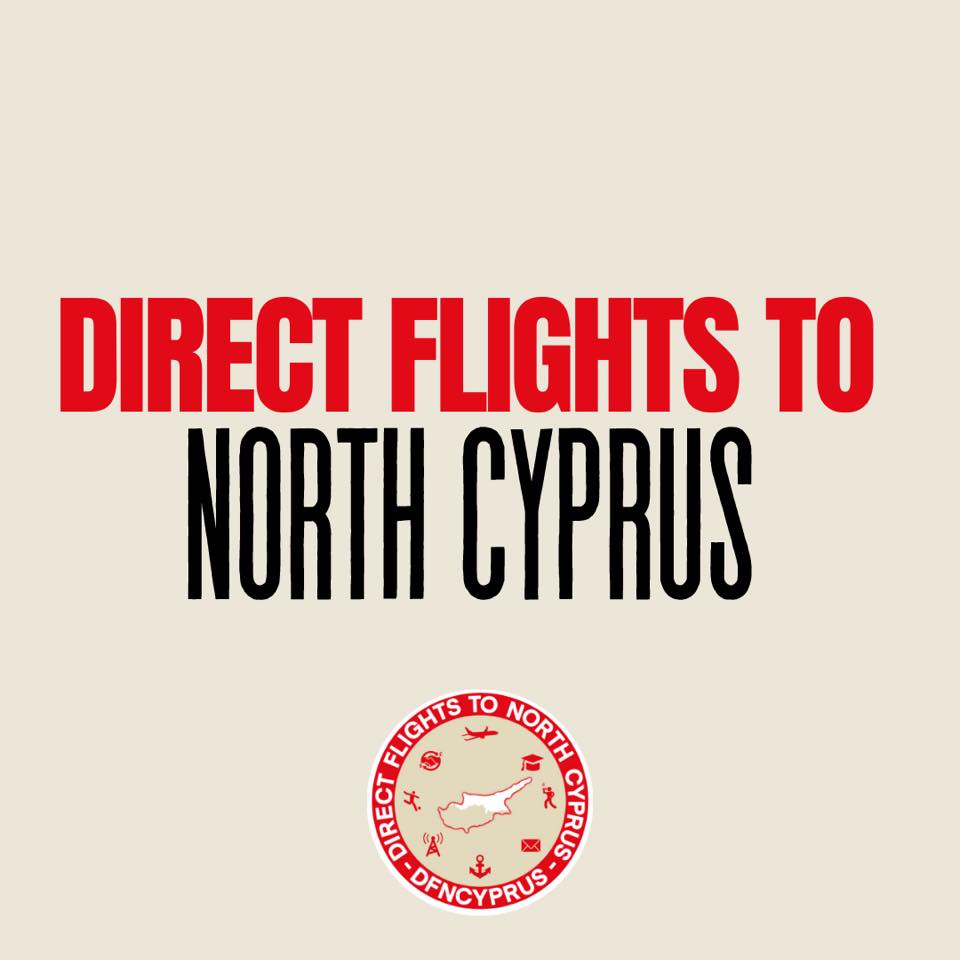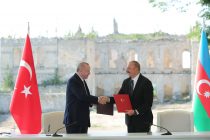British Turkish Cypriot activists have launched a campaign to end the flights embargo on North Cyprus.
Calling themselves DFN Cyprus (short for Direct Flights to North Cyprus), the group’s first action is a letter-writing campaign to British Members of Parliament, and it’s already generating results.
Over 130 MPs – some 20% of the 650 MPs sitting at Westminster – have been contacted by their British constituents to ask for their support to end the discriminatory disembarkation rule that requires passengers flying from North Cyprus’ Ercan Airport to get off the plane for a fresh security check in Turkey before boarding another aircraft to their final destination in Britain.
The rule, introduced by British government in 2017, was ostensibly, for “security” reasons, with the assertion that security at airports in the Turkish Republic of North Cyprus (TRNC) was not up to international standards.
Instead of passengers staying on the plane and simply having a quick touch-down, the imposition of a TRNC transit rule by the UK’s Department of Transport has meant longer and more expensive flights for those travelling from Ercan to the UK. It is also severely difficult for the elderly, disabled, and those with young families, who are forced to disembark twice in a relatively short time.
The rule, described by Turkish Cypriot tour operators as a “political decision”, has also negatively impacted the TRNC economy, with at least one in five UK passengers opting to use a South Cyprus airport instead of Ercan to avoid the hugely inconvenient mid-route disembarkation.
Trying to give a positive vent to the community’s ongoing frustration, DFN Cyprus created a template letter on its website to send to Parliamentarians. The letter explains in detail why the disembarkation rule is unfair and needs to go, and asks the MP for their support.
DFN Cyprus has set up a simple three-step process on their website allowing British residents to send the letter to their local MP.
The first step is to fill in a short form with their full name, email address, and the first line of their address, and post code to locate their MP.
DFN Cyprus have a simple 3-step process for people to send the disembarkation campaign to their local MP

The template letter then pops up addressed to their local MP, with the person’s name, email and address at the end. The person just checks all the details are correct.
To complete, the person presses the ‘Send Email’ button below the form and the letter is automatically sent to their MP.
Each letter sent via the group’s website also generates a notification to the campaign organisers, helping them to keep track of which MPs have been contacted to date.
Many people are also sharing their MP’s response with DFN Cyprus.
“This is not an issue that should be used as a political football”
Sir Iain Duncan Smith has consistently spoken out in favour of direct flights to North Cyprus. The Conservative MP for Chingford and Woodford Green MP has been a lone voice in the Commons until this campaign, but other MPs are now echoing his call for action on the issue.
Among the MPs to throw their weight behind the direct flights campaign are Edmonton MP Kate Osamor, and Enfield North MP Feryal Clark.
In her response to constituents’ letters highlighting the issue, Ms Osamor wrote:

“Thank you for your email calling on me to support you in challenging the DfT [Department of Transport] and FCDO [Foreign, Commonwealth, and Development Office] to review the security requirements for the Turkish Republic of Northern Cyprus airport.
“It’s clear that the measures imposed by the UK Government on flights to the TRNC are excessive. The costs of imposing such disruption on those travelling to the TRNC is clear and particularly difficult for the significant Cypriot community in the UK. I do not believe that the UK Government is taking these costs into account and ensuring that they consider the welfare of those traveling to the TRNC in imposing current security arrangements on those traveling to the TRNC.
“The UK must take a practical approach to this issue, putting the welfare of the communities impacted by the lack of direct flights first. This is not an issue that should be used as a political football. I support the commencement of direct flights to Northern Cyprus and will raise this issue in Parliament when possible.”
These sentiments were echoed by a fellow North London MP, Feryal Clark. In her response to a constituent, the Labour MP for Enfield North said that she had “on many occasions, written to the Secretary of State for Foreign, Commonwealth and International Affairs. Dominic Raab MP on this issue.”
Mrs Clark’s response also stated, “Let me assure you that I continue to press the Government on the concerns outlined in your email. Alongside this, I continue to work with my colleagues on the Shadow Frontbench and the community to make the case for direct flight connections to the Turkish Republic of Northern Cyprus.”
Others, like John Baron, the Conservative MP for Basildon and Billericay, has tabled a question about direct flights to North Cyprus to the Government.
Mr Baron received the standard – and for Turkish Cypriots, unsatisfactory – response from Wendy Morton, Minister for the European Neighbourhood, claiming they are unable to permit direct flights between the UK and the north of Cyprus as it would “breach the UK’s international obligations under the 1944 Chicago Convention on Civil Aviation.”
What is the disembarkation rule? And why are there no direct flights to North Cyprus?
The Republic of Cyprus was established in 1960 when the island gained its independence from Britain.
The Republic was meant to be a power-sharing government between Greek Cypriots and Turkish Cypriots. However, Greek Cypriots staged a coup in December 1963 and seized control of the government, resulting in the decade-long Cyprus Conflict.
These events resulted in the island being administered by two separate ethnic administrations since the start of 1964. In 1974, to prevent further bloodshed, the two communities were physically split into two separate ethnic zones, the Turkish north and the Greek south.
CLICK HERE TO VISIT THE DFN CYPRUS WEBSITE & TAKE ACTION AGAINST THE DISEMBARKATION RULE
As the international community only recognises one authority on the island – the Greek-Cypriot controlled Republic of Cyprus – it is they who get to determine which airports are open to international air traffic.
Relying on the Chicago Convention of 1944, Greek Cypriots have instructed the International Civil Aviation Organisation (ICAO) that the TRNC’s main airport Ercan, also known as Tymvou, is a non-designated airport for international flights. They also withhold permission for international airlines wanting to fly to Ercan, essentially barring all scheduled and charter flights to fly direct to North Cyprus.
While the vast majority of states and airlines comply with this request, airlines from Turkey and many operators of private jets do not without any legal repercussions.

As things stand, all scheduled and charter flights travelling to or from Ercan must touch-down in Turkey. Passengers can remain on the aircraft, but this requirement still adds time, cost and inconvenience to them and the airlines. It also limits the growth of tourism, which is the TRNC’s biggest sector.
In 2017, following intense Greek Cypriot lobbying, the British authorities added a new embargo for those heading to the UK from Ercan Airport.
On the pretext of ‘regional security concerns’, the UK required all aircraft travelling from the TRNC not only touch-down in Turkey, but that all passengers also disembark and go through additional security screening.
No other country in the world insists on this measure.
Ercan Airport has since improved its security, but the UK still refuses to lift the disembarkation rule – or to go and inspect it, with sources claiming it is because the Greek Cypriot authorities won’t permit this.
The human impact of this UK policy was keenly felt during the pandemic, when Turkey closed its air space to international flights to keep coronavirus from spreading. Transit passengers through Turkey were refused entry or had to quarantine.
The UK government was repeatedly asked to suspend its disembarkation rule, but refused, preventing vital repatriation flights from the TRNC to Britain to be arranged. It led to hundreds of people being stranded in North Cyprus for no good reason.
The UK’s uncompromising position contrasted sharply with that of Germany, which sent seven aircraft to repatriate its citizens from the TRNC. The flights back to Germany touched down in Turkey for a short time. All passengers remained on board and the planes took off soon after.
Who are DFN Cyprus?
The group announced itself on social media on 14 June, stating that DFN Cyprus was formed “to lobby the British government for direct flights between the United Kingdom and North Cypris.”
The unnamed activists describe themselves as a “collective…who are of different ages and from diverse backgrounds that include students, professionals and businesspeople.”
The London-based group say this is an “independent and volunteer-managed campaign” that was “inspired” by Kadir Kanizi’s Parliamentary direct flights petition. They aim to not only generate more signatures for the petition, but to also “let Britain know why direct flights to Ercan Airport in North Cyprus are legally, politically, and morally necessary.”
Among the group’s supporters listed online are the British Turkish Cypriot Association, human rights group Embargoed!, and popular Turkish Cypriot social media groups such as TCCUK, Young Turkish Cypriots, and Kibris Worldwide.
Cyprus Paradise – the biggest British tour operator to the TRNC, which was behind last year’s repatriation flights – is also listed as a campaign supporter.
Main image, top, left to right, of UK MPs backing direct flights to the TRNC: Sir Iain Duncan Smith, Kate Osamor, and Feryal Clark





